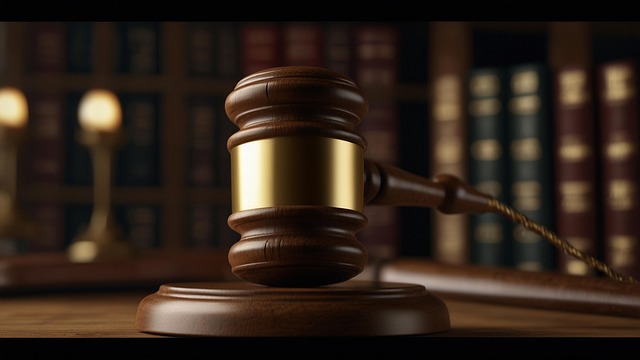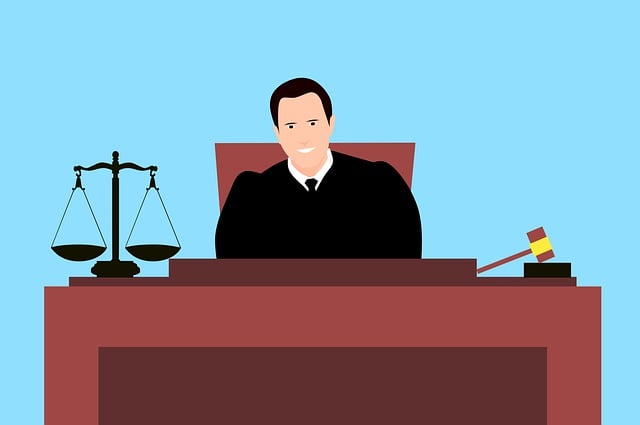The Right to Counsel in Criminal Cases ensures fair legal representation for individuals accused of crimes, especially in complex cases like white-collar crime. Defense attorneys are vital advocates, skilled in navigating intricate procedures, challenging evidence, and securing favorable outcomes. This right, guaranteed by the U.S. Sixth Amendment, has evolved through historical reforms to protect the innocent and ensure due process, balancing public safety with individual rights.
“Delve into the intricate world of criminal law enforcement and explore fundamental aspects that underpin justice. This article examines crucial components, beginning with a deep dive into the Right to Counsel in Criminal Cases, a cornerstone of fair trials. We uncover the pivotal role played by defense attorneys in safeguarding individuals’ rights. Additionally, we trace historical perspectives and significant reforms, highlighting procedural safeguards designed to ensure due process. Understanding these elements is essential for navigating the complexities of criminal justice.”
- Understanding the Right to Counsel
- The Role of Defense Attorneys
- Procedural Safeguards in Criminal Cases
- Historical Perspective and Reforms
Understanding the Right to Counsel

Understanding the Right to Counsel is a cornerstone in criminal law enforcement, especially when addressing complex cases like white-collar and economic crimes. This fundamental right, enshrined in legal systems worldwide, guarantees that individuals accused of a crime are entitled to legal representation during their prosecution. Having competent counsel by your side can significantly impact the outcome of a case, ensuring fair treatment and protection from potential legal pitfalls.
The Right to Counsel in criminal cases is crucial for several reasons. It enables defendants to navigate the intricate legal processes, understand their options, and challenge evidence presented against them. Skilled attorneys specializing in white-collar defense are adept at uncovering weaknesses in prosecution cases, presenting compelling arguments, and often securing winning challenging defense verdicts. This right ensures that justice is not only sought but also achieved, even in high-stakes scenarios where substantial financial interests are at play.
The Role of Defense Attorneys

In criminal law enforcement, defense attorneys play a pivotal role, ensuring that individuals accused of crimes have their rights protected. The Right to Counsel in Criminal Cases is a cornerstone of fair legal proceedings, and these lawyers are at the forefront of safeguarding this right. They provide a crucial service by offering specialized knowledge and skills, especially in high-stakes cases where the consequences can be severe, such as white-collar defense.
Defense attorneys serve as advocates for their clients, guiding them through complex legal systems. Their primary objective is to protect the respective business interests of their clients while ensuring that justice is served. They prepare defenses, challenge evidence, and cross-examine witnesses to present the best possible case for their clients. This meticulous process can be a game-changer in determining outcomes, especially when navigating labyrinthine legal procedures.
Procedural Safeguards in Criminal Cases

In criminal law enforcement, procedural safeguards play a pivotal role in ensuring fairness and protecting the rights of the accused. One of the most fundamental protections is the Right to Counsel in Criminal Cases, which allows individuals to have an attorney represent them during investigations, arraignments, trials, and appeals. This right, enshrined in the U.S. Constitution’s Sixth Amendment, acts as a shield against potential abuses of power by law enforcement, providing a winning challenging defense verdicts.
These procedural safeguards extend throughout all stages of the investigative and enforcement process. From the initial questioning to the presentation of evidence in court, accused persons have the right to legal counsel who can ensure their interests are protected. A competent general criminal defense attorney can cross-examine witnesses, challenge inadmissible evidence, and navigate complex legal procedures, thereby increasing the chances of a favorable outcome for the defendant.
Historical Perspective and Reforms

The evolution of criminal law enforcement has been shaped by a historical perspective that highlights the struggle for justice and fairness. In the past, practices such as public trials and harsh punishments dominated legal systems, often infringing on the rights of accused individuals. However, significant reforms have since emerged to protect the innocent and ensure due process. One pivotal change was the establishment of the Right to Counsel in criminal cases, which guarantees defendants legal representation during proceedings. This right has been instrumental in safeguarding the interests of both corporate and individual clients, ensuring they receive a fair trial and potentially achieving complete dismissal of all charges.
Reforms have also aimed to streamline legal processes, making them more efficient while maintaining integrity. These changes reflect a broader societal shift towards achieving extraordinary results—not merely through punishment but by fostering a just and equitable legal framework. Such developments underscore the continuous effort to balance public safety with individual rights in the ever-evolving landscape of criminal law enforcement.
In conclusion, understanding the Right to Counsel in criminal cases is paramount for ensuring justice. Throughout history, reforms have enhanced procedural safeguards, with defense attorneys playing a crucial role in protecting individuals’ rights. By recognizing the importance of counsel and adhering to established procedures, we strengthen the criminal justice system, guaranteeing fair trials and due process for all.






